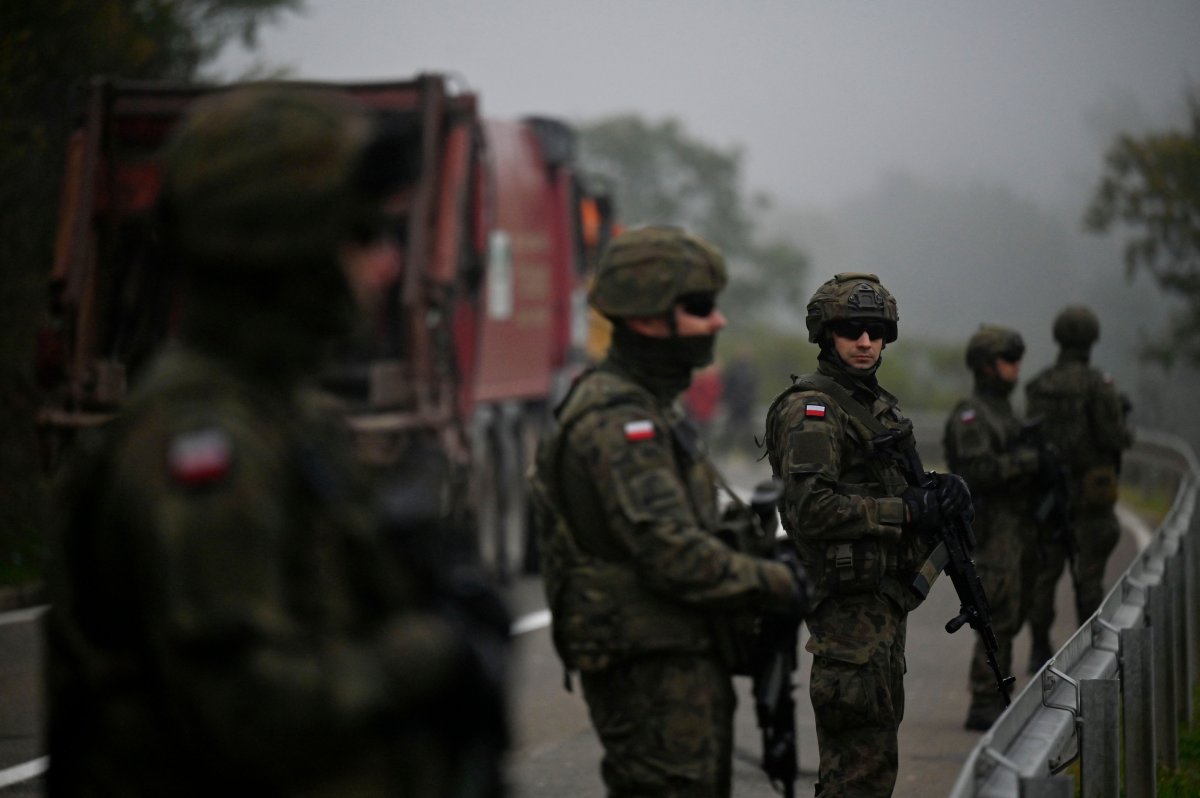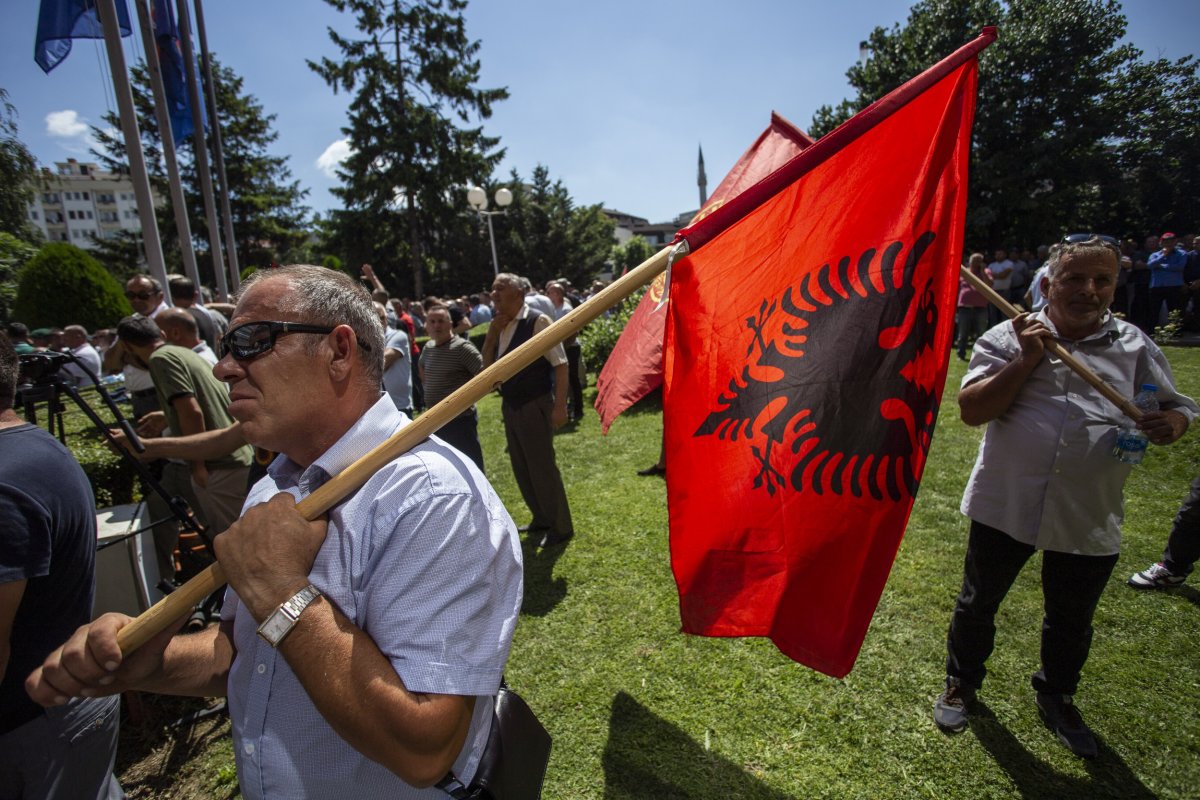Fourteen years after Kosovo declared independence from Serbia, tensions are still running high between the two countries, to the point that NATO is now "prepared to intervene" to avoid another war in the heart of Europe.
At midnight on Monday, new rules were set to come into force, including one requiring people in majority ethnic Serb areas in Kosovo to swap their Serbian-issued car license plates for Kosovan-issued ones—the reverse of what's currently already required by Serbia for vehicles entering the country from Kosovo.
But the implementation of these new laws was postponed for a month after ethnic Serbs in the north of the country blocked roads and shots were fired in clashes with the Kosovan authorities. The protests led Kosovo to shut its Bernjak and Jarinje border crossings with Serbia.
On Monday, Kosovo's government accused Serbia of trying to destabilize the country by sending protesters to its borders.

Why Are There Tensions Between Kosovo And Serbia?
The dispute between the two countries is a centuries-long one.
Once part of the Ottoman Empire, Kosovo was ceded to Serbia and Montenegro after the Ottomans were defeated in the Balkan wars at the beginning of the 20th century. While Serbia (then the Federal Republic of Yugoslavia) grew to see Kosovo as a key part of its national identity, the ethnic Muslim Albanian majority living in the territory saw the Orthodox Serbs as occupiers.
In February 1998, ethnic Albanians living in Kosovo launched an armed uprising to rid themselves of the Serbian rule, which culminated in a war that lasted for over a year and ended in June 1999.
The Serbs brutal response to the Albanians' rebellion in Kosovo triggered the intervention of NATO in March 1999, which forced the Yugoslav troops to withdraw from Kosovo.
In 2008, Kosovo unilaterally declared independence from Serbia—but Serbia called the declaration illegal. Though Kosovo's independence was declared legal according to international law by the International Court of Justice, Serbia rejected the verdict.
Kosovo's independence has been recognized by over 100 countries around the world, but some—including Serbia, Russia and China—still deny it full recognition. Because of its only partially recognized status, Kosovo isn't part of the United Nations—or NATO.
Why Is NATO Involved?
The fragile peace obtained after NATO bombing forced the Yugoslav troops out of Kosovo in 1999 has been maintained until now thanks in part to the NATO mission which has kept watch over the two neighboring countries since then.
Since June 1999, NATO has kept a mission of 3,770 troops provided by 28 Allied and partner countries on the ground in Kosovo to maintain peace between the country and Serbia and stabilize the region, called KFOR.
According to NATO, "over time, as the security situation has improved, NATO has been gradually adjusting KFOR's force posture towards a smaller and more flexible force with fewer static tasks."
But now the NATO-led peacekeeping mission said it's closely monitoring the "tense" situation in northern Kosovo and is "prepared to intervene if stability is jeopardized."
KFOR said it would "take whatever measures are necessary to keep a safe and secure environment in Kosovo at all times, in line with its U.N. mandate."
— @NATO - KFOR (@NATO_KFOR) July 31, 2022
The dispute between Kosovo and Serbia is complicated by Moscow backing of its ally, Belgrade.
On Sunday, Maria Zakharova, spokesperson for Russia's Foreign Ministry, called on Kosovo, the U.S. and the EU to stop "provocations" and respect the rights of ethnic Serbs in Kosovo.
''Such a development of events is more evidence of the failure of the mediation mission of the European Union. This is also an example of what place Serbia has been prepared for in the European Union by offering Belgrade to de facto put up with the lack of rights of its compatriots,'' she said.
Observers fear Moscow might see an opportunity in the current tensions between the two countries to push the U.S. and the NATO mission out of Kosovo.

Uncommon Knowledge
Newsweek is committed to challenging conventional wisdom and finding connections in the search for common ground.
Newsweek is committed to challenging conventional wisdom and finding connections in the search for common ground.
About the writer
Giulia Carbonaro is a Newsweek Reporter based in London, U.K. Her focus is on U.S. and European politics, global affairs ... Read more
To read how Newsweek uses AI as a newsroom tool, Click here.






